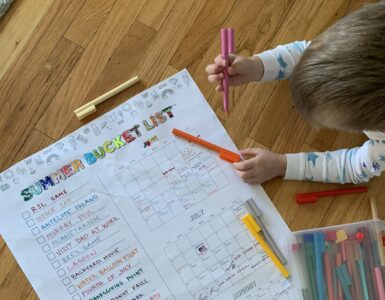If you’ve ever been depressed by the daily headlines, or if world events weigh you down, you may have wondered how to stay above it all. When the world seems negative, how can you still find the positive?
Trish Henrie-Barrus is an adjunct professor at the University of Utah who specialties in Positive Psychology. She shares strategies to help us and our families remain positive, even when the world seems to falling down around us.
Korea threatens the US, unemployment is rampant, gun violence is exploding, we are falling off the fiscal cliff, doctors have found a new strain of bacteria…
Have you ever wondered if all of the negative events going on in the world are affecting you? Do these negative events cause negative messages in us that affect our physical and mental well-being??
Research shows that negativity can increase our stress, affect our emotional and mental well-being, harm our relationships, and undermine our health.
Negativity breeds low expectations and this definitely has an effect on productivity – our own and the productivity of the nation as a whole. Negative news inspires the thought that nothing is ever going to change and it’s really too late. Therefore, the individual approaches life with a helpless feeling of “why bother”.
This feeling has been labeled as “learned helplessness” and is created in people when we are continually exposed to situations that are beyond our control. We then begin to believe that we are powerless and there is no solution, even when there may be one. This state of mind also dampens our dreams as we can only see “what can’t be” instead of “what can”. Helplessness can convert to hopelessness and depression. Author, Jon Gordon, says, “A society in a state of depression can’t think its way out of a crisis.” Neither can the individual. We lose confidence and become fearful.
So what is the solution? How can we be or stay positive in a negative world? The research shows six strategies that can help us and our families remain positive even when life seems to be falling down around us:
1. Be proactive. Control what you can control in your life and let go of the rest. Most of us can only control our own behavior and own feelings. Start there. Set small goals and strive to reach them.
2. Turn off the TV/news/other negative outlets. Surround you and your family with positive sayings, examples and stories. Positive begets the positive.
3. Create an “intergenerational family”. Create, refine and retell the story of your family’s positive moments and your ability to bounce back from the difficult ones. Children who have the most self-confidence and resilience are those who know they belong to something bigger than themselves.
4. Journal. Expressive writing acts as a purging mechanism to get rid of the negative and record the positive. It has been found to enhance mental and physical health and increase problem solving.
5. Be grateful. Write down 5 things a day you are grateful for. Research has shown that grateful people are happier, have fewer health complaints, have better sleep patterns, overcome grief faster and have less depression.
6. Do something for someone else. This takes the focus off of you and your problems and puts them in perspective. Altruistic people find life more meaningful and live longer.
Trish Henrie-Barrus is an adjunct professor at the University of Utah where she teaches Positive Psychology. She also has a private counseling office in Orem and Bountiful. Her therapy modality is cognitive/behavioral including many positive psychological strategies. Visit her website at www.riverwoodsbehavioralhealth.com or call for an appt 801.787.9855.















Add comment